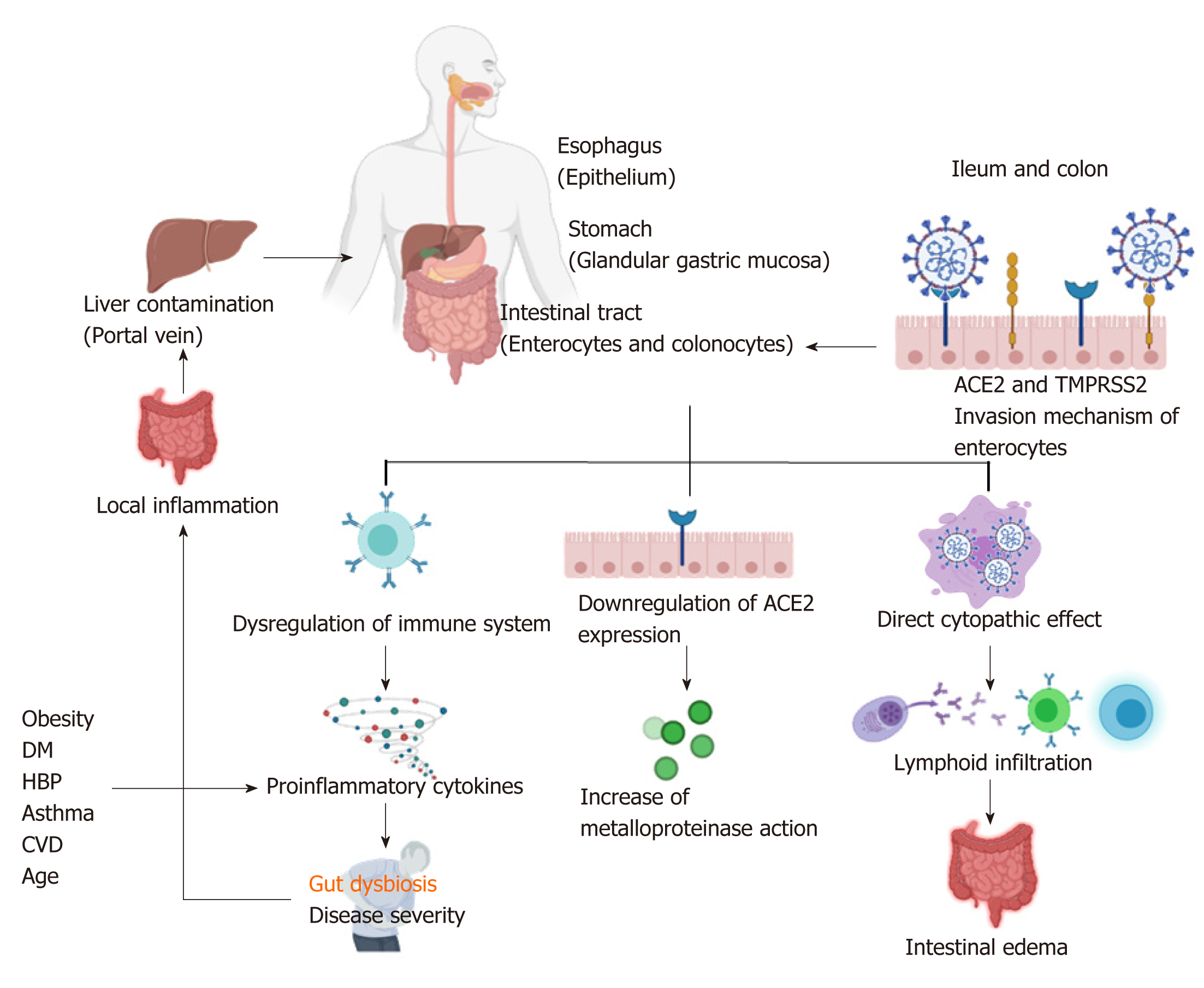Copyright
©The Author(s) 2021.
World J Gastroenterol. Jul 14, 2021; 27(26): 4160-4171
Published online Jul 14, 2021. doi: 10.3748/wjg.v27.i26.4160
Published online Jul 14, 2021. doi: 10.3748/wjg.v27.i26.4160
Figure 1 Mechanisms of severe acute respiratory syndrome-coronavirus-2 gastrointestinal infection.
The same receptors mediate infections of the gastrointestinal system as in the respiratory system. This situation could begin at the intestinal tract by enterocyte invasion, which possesses angiotensin-converting enzyme 2 (ACE2) and transmembrane protease serine 2 receptors recognized by severe acute respiratory syndrome-coronavirus-2. Once in cells, the virus can induce cell death-mediated dysregulation of the immune system by downregulation of ACE2 receptor expression and a direct cytopathic effect. All three mechanisms induce immune dysregulation and increase the inflammation mechanism. Some risk factors that accelerate immune inflammation are obesity, diabetes mellitus, high blood pressure, asthma, cardiovascular disease, and advanced age. Moreover, the virus could enter the liver by the portal vein and induce hepatic failure. ACE2: Angiotensin-converting enzyme 2; TMPRSS2: Transmembrane protease serine 2; DM: Diabetes mellitus; HPB: High blood pressure; CVD: Cardiovascular disease.
- Citation: Delgado-Gonzalez P, Gonzalez-Villarreal CA, Roacho-Perez JA, Quiroz-Reyes AG, Islas JF, Delgado-Gallegos JL, Arellanos-Soto D, Galan-Huerta KA, Garza-Treviño EN. Inflammatory effect on the gastrointestinal system associated with COVID-19. World J Gastroenterol 2021; 27(26): 4160-4171
- URL: https://www.wjgnet.com/1007-9327/full/v27/i26/4160.htm
- DOI: https://dx.doi.org/10.3748/wjg.v27.i26.4160









